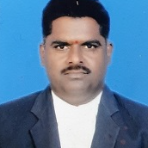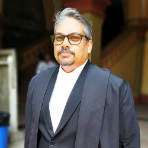Email is invalid
Email is required
Email already registered



Anonymous
posted 5 years ago
Showing 3 of 3 Responses
A. Profesional practice which degrades dignity of the law profession is prohibited and also aim.of alternative profession banning is d concentration required for d ultimate discharge duties n functions attached to d legal profession. If u intend to do it to the fullest n sincerely both practices simultaneously are virtually impossible in due course of time ie. t d advanced stage of practice. That's why the rules

Reply Here
A. Dear Sir,
You may approach the High Court and get quash such rule/s and enroll yourself as an advocate. No law can prevent you from professing any profession of your like and choice and all such rules will be declared anti constitution. You have degree of law it is sufficient.
For full procedure contact me on mobile through Vidhikarya.
Rate me Five Star *
Please visit the following link.
https://vidhikarya.com/LawyerRating/9506c43f5d0b2d266a07

Reply Here
A. This is an interesting question and the answer is not that simple to provide. So. lets dive into some of the provisions and try to find out the answer.
As per the Section 6 of Advocates Act 1961 the State Bar Council’s one of the functions is to admit advocates in its roll and also to make rules for professional conducts of the enrolled advocates.
Section 6. Functions of State Bar Councils. — (1) The functions of a State Bar Council shall be—
(a) to admit persons as advocates on its roll;
(b) to lay down standards of professional conduct and etiquette for advocates;
Let’s have a look to Section 24 of the Advocate’s Act;
Section 24. Persons who may be admitted as advocates on a State roll.—
(1) Subject to the provisions of this Act, and the rules made thereunder, a person shall be qualified to be admitted as an advocate on a State roll, if he fulfills the following conditions, namely:—
(a) he is a citizen of India: Provided that subject to the other provisions contained in this Act, national of any other country may be admitted as an advocate on a State roll, if citizens of India, duly qualified, are permitted to practise law in that other country;
(b) he has completed the age of twenty-one years;
(c) he has obtained a degree in law—
(i) before the 3[12th day of March, 1967], from any University in the territory of India; or
(ii) before the 15th August, 1947, from any University in any area which was comprised before that date within India as defined by the Government of India Act, 1935; or
(iii) after the 12th day of March, 1967, save as provided in sub-clause (iiia), after undergoing a three year course of study in law from any University in India which is recognised for the purposes of this Act by the Bar Council of India; or
(iiia) after undergoing a course of study in law, the duration of which is not less than two academic years commencing from the academic year 1967-68 or any earlier academic year from any University in India which is recognised for the purposes of this Act by the Bar Council of India; or] 2[
(iv) in any other case, from any University outside the territory of India, if the degree is recognised for the purposes of this Act by the Bar Council of India] or; 3[he is barrister and is called to the Bar on or before the 31st day of December, 1976 4[or has passed the article clerks examination or any other examination specified by the High Court at Bombay or Calcutta for enrolment as an attorney of that High Court;] or has obtained such other foreign qualification in law as is recognised by the Bar Council of India for the purpose of admission as an advocate under this Act;] 5[***]
(e) he fulfils such other conditions as may be specified in the rules made by the State Bar Council under this Chapter;
(f) he has paid, in respect of the enrolment, stamp duty, if any, chargeable under the Indian Stamp Act, 1899 (2 of 1899), and an enrolment fee payable to the State Bar Council of 7[six hundred rupees and to the Bar Council of India, one hundred and fifty rupees by way of a bank draft drawn in favour of that Council]: Provided that where such person is a member of the Schedule Castes or the Schedule Tribes and produces a certificate to that effect from such authority as may be prescribed, the enrolment fee payable by him to the State Bar Council shall be 1[one hundred rupees and to the Bar Council of India, twenty-five rupees].
[Explanation.—For the purposes of this sub-section, a person shall be deemed to have obtained a degree in law from a University in India on that date on which the results of the examination for that degree are published by the University on its notice board or otherwise declaring him to have passed that examination.]
(2) Notwithstanding anything contained in sub-section (1), [a vakil or a pleader who is a law graduate] may be admitted as an advocate on a State roll, if he—
(a) makes an application for such enrolment in accordance with the provisions of this Act, not later than two years from the appointed day, and
(b) fulfils the conditions specified in clauses (a), (b), (e) and (f) of sub-section (1). 4[(3) Notwithstanding anything contained in sub-section (1) a person who— (a) 5[***] has, for at least three years, been a vakil or pleader or a mukhtar, or, was entitled at any time to be enrolled under any law 6[***] as an advocate of a High Court (including a High Court of a former Part B State) or of a Court of Judicial Commissioner in any Union territory; or 7[(aa) before the Ist day of December, 1961, was entitled otherwise than as an advocate practise the profession of law (whether by of pleading or acting or both) by virtue of the provision of any law, or who would have been so entitled had he not been in public service on the said date; or] 1[***]
(c) before the 1st day of April, 1937, has been an advocate of any High Court in any area which was comprised within Burma as defined in the Government of India Act, 1935; or
(d) is entitled to be enrolled as an advocate under any rule made by the Bar Council of India in this behalf, may be admitted as an advocate on a State roll if he— (i) makes an application for such enrolment in accordance with the provisions of this Act; and (ii) fulfils the conditions specified in clauses (a), (b), (e) and (f) of sub-section (1).]
Section 24 of the same Act lays down the rules for admitting an advocate in its rolls by State Bar Councils. It is important to see that the basic criteria to get oneself enrolled as an advocate are;
I. Being Citizen of India
II. Completed the age of 21 years
III. Has obtained a degree in law
IV. Fulfils other criteria made by the State Bar Councils
V. Has paid the stamp duty or enrolment fee
Looking at the above conditions one can arrive at an answer that even a Doctor is eligible to get enrolled as an advocate. But then we will have to look at the iv point above which empowers the State Bar Councils to make additional rules. Since looking at each Bar Council is a gargantuan task so, we will try to see the rules made by the Bar Council of India.
Section VII-Restriction on other Employments
47. An advocate shall not personally engage in any business; but he may be a sleeping partner in a firm doing business provided that in the opinion of the appropriate State Bar Council, the nature of the business is not inconsistent with the dignity of the profession.
48. An advocate may be Director or Chairman of the Board of Directors of a Company with or without any ordinarily sitting fee, provided none of his duties are of an executive character. An advocate shall not be a Managing Director or a Secretary of any Company.
49. An advocate shall not be a full-time salaried employee of any person, government, firm, corporation or concern, so long as he continues to practise, and shall, on taking up any such employment, intimate the fact to the Bar Council on whose roll his name appears and shall thereupon cease to practise as an advocate so long as he continues in such employment.
“That as Supreme Court has struck down the appearance by Law Officers in Court even on behalf of their employers the Judgement will operate in the case of all Law Officers. Even if they were allowed to appear on behalf of their employers all such Law Officers who are till now appearing on behalf of their employers shall not be allowed to appear as advocates. The State Bar Council should also ensure that those Law Officers who have been allowed to practice on behalf of their employers will cease to practice. It is made clear that those Law Officers who after joining services obtained enrolment by reason of the enabling provision cannot practice even on behalf their employers.”
“That the Bar Council of India is of the view that if the said officer is a whole-time employee drawing regular salary, he will not be entitled to be enrolled as an advocate. If the terms of employment show that he is not in full time employment he can be enrolled.”
Section 47 categorically prohibits an advocate from taking part in any business. Obviously Medical practice is not a business hence it can be argued that a doctor can be barred under this provision. We will have to see that how does the Bar Council interprets the word BUSINESS here. If they say that it includes the medical practice as well then it will be a great point of discussion and argument as advocates too like doctors are practioners.
In my opinion I would prefer to ask and challenge the rules and provisions which debars a doctor, having law degree, to practice as an Advocate. A doctor practicing law in no way brings down the image or nobility of the legal profession and in fact it will be a great strength and expertise to employ the experience and skills of a doctor in some of the medico legal cases and other cases where a doctor can be of much help in resolving the case.
I would suggest you to communicate with Bar Council of India to know whether you can get yourself enrolled or not and if the answer is negative then challenge that in the court of law under your basic right to profess any workmanship.

Reply Here
Consult Lawyer
The consultation price is Rs. 200/-
Student Login
Student Sign up
Email is invalid
Email is required
Email already registered
Password Should be minimum 6 characters
Password is required
Password doesn't match
Confirm Password is required
Confirm Password doesn't match.
First Name is required
Last Name is required
State is required
City is required
Education is required
Institution is Required
Year of Education is required
Completetion Year is required
Student ID Card is Required
Verify OTP
If you haven't received any OTP, please click the Resend button below. You can change your registered mobile number by clicking on the Edit icon.
{{tip}}
Consult Advocate {{lawyerName}}
Please select how would you like to Consult
| Type of Consultation | Fees | |
|---|---|---|
| Phone Consultation | ₹ | |
| Meeting Consultation | ₹ | |
| Email Consultation | ₹ | |
| Video Conference | ₹ | |
| Request for quotation from the Lawyer. | ||
Review and Confirm
| Consultation Request for Advocate {{lawyerName}} | |
| Consultation Type : Student Consultation | |
| Charges : | ₹ | 236 | (with 18% GST) |
Your Request has been registered. We will get back to you soon.
Submit Your Query
Your Transaction is Completed
Your Transaction is Failed
Login to Proceed Further